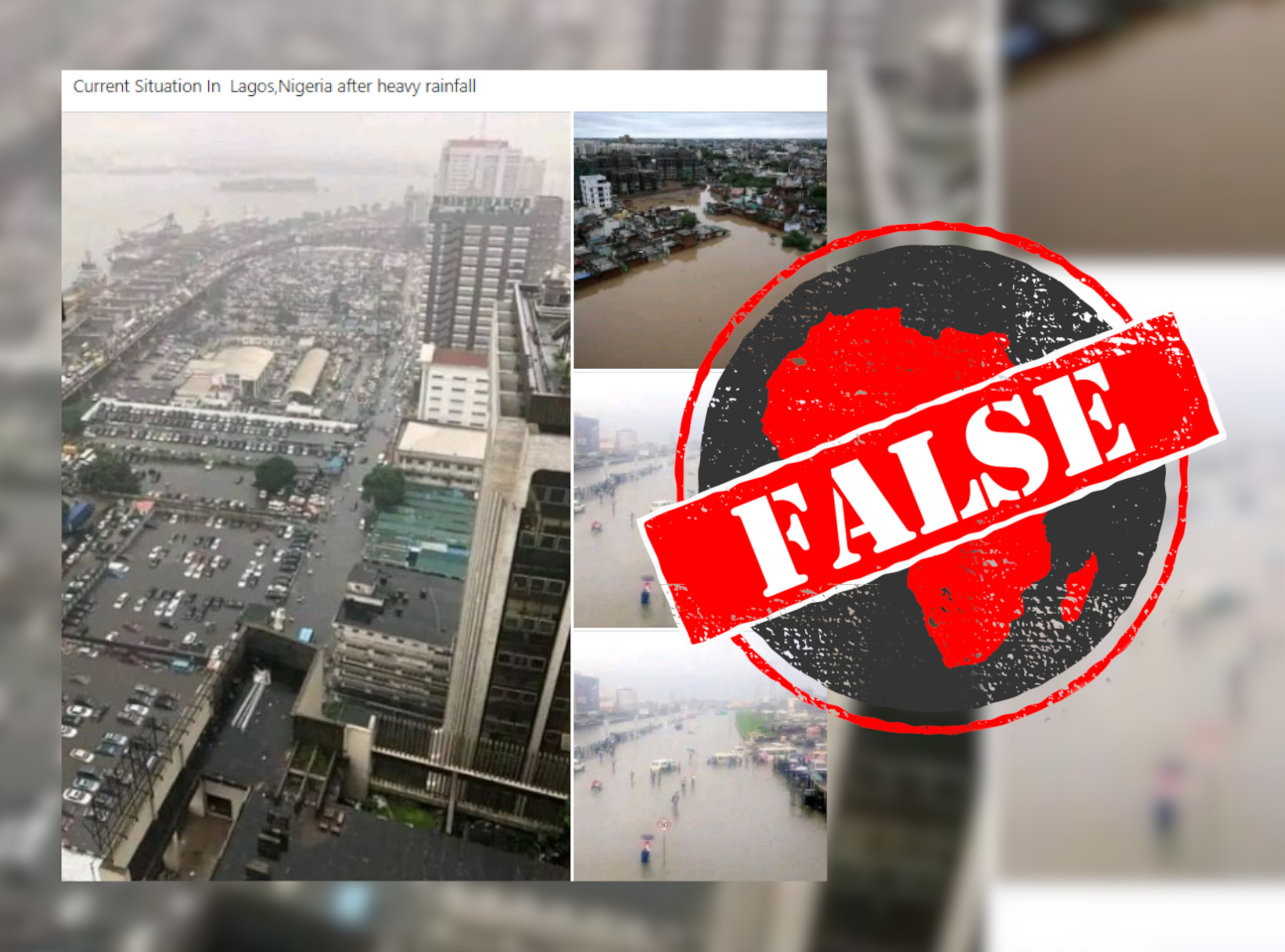“Current Situation In Lagos, Nigeria after heavy rainfall,” is the caption to a Facebook post featuring four photos showing buildings and roads flooded, and cars submerged.
The photos, published 10 July 2022, appear to show Lagos after the city experienced days of heavy rainfall.
Other photos are also circulating online as evidence of the flooding.
There were mainstream media reports of flooding in parts of the city, but do these photos shared on Facebook show Lagos in July 2022?

Old photos from other flooding incidents
A Google reverse image search revealed that the first photo shows the flooding of Marina, a major business district of Lagos Island.
But the photo was taken on 16 July 2021 when the district experienced one of the worst floods of recent time.
The second photo shows an August 2019 incident in Ahmedabad, India.
The UK’s Independent newspaper reported that at least 157 people died after a wet monsoon caused flooding and landslides.
The Independent article includes the photo. It is credited to Reuters and shows Ahmedabad, India on 10 August 2019, according to the caption.
The third and the fourth photos are identical. It has been used in reports about flooding in Lagos as far back as July 2017.
None of the photos in this Facebook post were from the flooding of Lagos in July 2022.
Republish our content for free
For publishers: what to do if your post is rated false
A fact-checker has rated your Facebook or Instagram post as “false”, “altered”, “partly false” or “missing context”. This could have serious consequences. What do you do?
Click on our guide for the steps you should follow.
Publishers guideAfrica Check teams up with Facebook
Africa Check is a partner in Meta's third-party fact-checking programme to help stop the spread of false information on social media.
The content we rate as “false” will be downgraded on Facebook and Instagram. This means fewer people will see it.
You can also help identify false information on Facebook. This guide explains how.


Add new comment